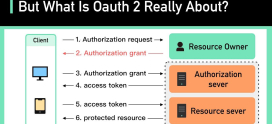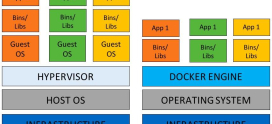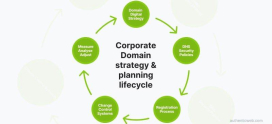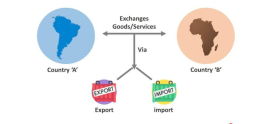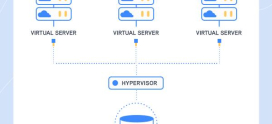
How to Protect DNS in a Hybrid Cloud Environment
“`html
In today’s digital landscape, the hybrid cloud environment is becoming increasingly common for businesses of all sizes. However, with this evolution comes a significant concern: safeguarding your DNS. You might be wondering, “Why should I care about DNS security?” or “Isn’t the cloud provider handling it?” These are valid questions! Many individuals and companies alike struggle with the complexities of remote services, especially when it comes to security. Let’s face it—who doesn’t worry about whether their critical business information is safe and sound?
If you’ve ever felt overwhelmed by technical jargon or the fear of a potential data breach, you’re certainly not alone. It’s normal to feel anxious about the security of your DNS, especially when dealing with hybrid clouds that blend on-premises and cloud infrastructures. But fear not! In this article, we will explore practical tips and solutions that will help protect your DNS in a hybrid cloud environment.
By the end of this read, you’ll have clear strategies that can give you peace of mind knowing your data is more secure in the cloud. So, let’s dive in and explore how to make your hybrid cloud DNS fortress strong!
Understanding DNS Basics
First, let’s break down what DNS is all about. Imagine if every time you wanted to reach out to a friend, you had to remember their unique phone number instead of their name. That’s essentially what DNS does for the internet. It translates user-friendly domain names (like www.example.com) into IP addresses that servers can comprehend.
When DNS is compromised, it can lead to disastrous results—think of it as giving someone the wrong phone number and having them call a scammer instead of a friend. Understanding this will help highlight the importance of keeping your DNS secure.
Common DNS Threats
Before we get into protection strategies, it’s essential to understand the enemy. Here are some common DNS threats:
- DNS Spoofing: This is when a hacker masquerades as a legitimate DNS server, misleading users to harmful websites.
- DDoS Attacks: Distributed denial-of-service attacks flood a server with traffic, making your DNS services unusable.
- DNS Hijacking: In this scenario, attackers redirect your traffic to malicious sites without your knowledge.
Strategies to Secure DNS in a Hybrid Cloud
1. Choose a Reputable Cloud Provider
Start by selecting a reliable cloud provider that prioritizes security. Providers like DarazHost offer enhanced DNS security features, ensuring your data is safeguarded. Look for services that include DNSSEC (Domain Name System Security Extensions), which adds an extra layer of security to your DNS records.
2. Implement DNSSEC
As mentioned, DNSSEC is critical for protecting your domain from spoofing and cache poisoning. This cryptographic protocol adds a layer of trust to your DNS data by verifying its authenticity. It’s like putting a high-tech lock on your door—only those with the right keys can enter.
3. Regular Updates and Patching
It’s vital to keep your systems updated. Regularly patching vulnerabilities in your operating system and software is akin to keeping your immune system strong—it helps prevent infections and attacks.
4. Use a VPN
Virtual Private Networks (VPNs) encrypt your internet traffic, adding another level of security for hybrid cloud operations. Think of it as a secure tunnel for your data, ensuring that cybercriminals can’t easily intercept your communications.
5. Monitor DNS Logs
Regular monitoring of your DNS logs can reveal suspicious activities or anomalies. This ongoing vigilance acts like having a security camera; you can see what’s happening and respond quickly to any threats.
6. Set Up Redundancy
Don’t rely on a single DNS provider. Setting up secondary DNS servers provides redundancy, ensuring that if one fails, the other can take over. This is like having a backup generator; it keeps the lights on when the primary power source goes out.
7. Educate Your Team
The human element is often the weakest link in security. Providing your team with training on cybersecurity best practices can greatly reduce risks. Think of it as teaching your family about safety; it ensures everyone knows how to protect themselves.
Maintaining Your DNS Security
Once you have implemented these protective measures, it’s crucial to maintain your DNS security. Here are some ongoing strategies:
- Regular Audits: Schedule periodic security audits to discover vulnerabilities.
- Stay Informed: Keep up with current cybersecurity trends and tweaks that could leave your DNS exposed.
- Test Your DNS Resilience: Conduct stress tests to see how well your system holds up under pressure.
FAQs
What is a hybrid cloud environment?
A hybrid cloud environment combines public and private clouds to allow data and applications to be shared between them. It provides flexibility and greater security for sensitive data.
Why is DNS important?
DNS is crucial as it translates human-readable domain names to machine-readable IP addresses, enabling users to access websites and resources efficiently.
How does DNSSEC work?
DNSSEC adds digital signatures to DNS data, allowing users to verify that the responses they receive are authentic and haven’t been tampered with.
What are some consequences of a DNS attack?
DNS attacks can lead to unauthorized access to sensitive data, service interruptions, economic loss, and damage to your brand’s reputation.
Can I use multiple DNS providers at once?
Yes, using multiple DNS providers can enhance redundancy and security, ensuring continuous availability of your DNS services even if one provider experiences issues.
How can I educate my team about DNS security?
You can conduct regular workshops, share materials on security best practices, and encourage an open dialogue about cybersecurity concerns within the team.
What should I do if I suspect a DNS attack?
If you suspect a DNS attack, immediately review your logs, contact your DNS provider for assistance, and consider implementing additional security measures.
Is cloud hosting safer than traditional hosting?
Cloud hosting offers flexibility and scalability, often with advanced security features that can make it safer than traditional hosting, especially when properly configured.
How can I choose the right cloud provider?
Consider factors such as security features, customer support, uptime guarantees, and reputation in the industry to select the right cloud provider.
How can I choose the right cloud provider?
Consider factors such as security features, customer support, uptime guarantees, and reputation in the industry to select the right cloud provider.
By following these strategies and maintaining an ongoing security posture, you can significantly enhance your DNS security in a hybrid cloud environment. Remember, being proactive about security is key to protecting your business’s critical information.
“`


